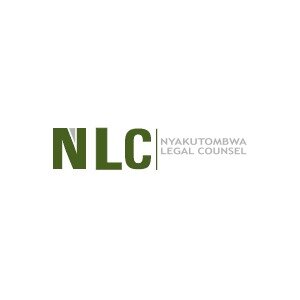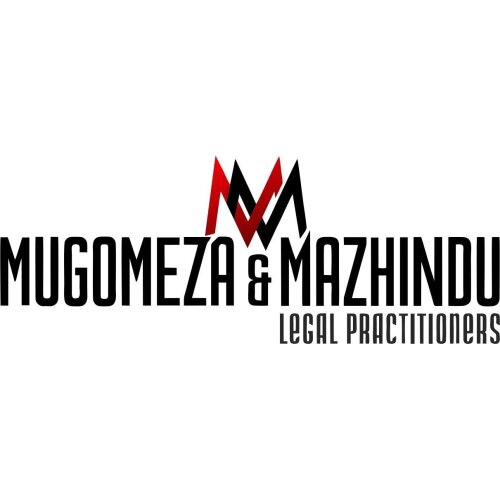Best New Business Formation Lawyers in Harare
Share your needs with us, get contacted by law firms.
Free. Takes 2 min.
List of the best lawyers in Harare, Zimbabwe
About New Business Formation Law in Harare, Zimbabwe
New Business Formation in Harare, Zimbabwe, involves the legal and administrative processes required to establish a legally recognized business entity. This includes choosing a suitable business structure, registering the business, obtaining necessary licenses and permits, and complying with regulatory requirements. The primary types of business structures available are sole proprietorships, partnerships, private limited companies, and public companies. Each structure has its advantages and legal implications, often requiring thorough consideration before making a decision.
Why You May Need a Lawyer
There are several situations where seeking legal advice during the formation of a new business in Harare can be beneficial:
- Choosing the Right Business Structure: Legal assistance can help you understand the implications of each business structure and choose one that aligns with your goals.
- Drafting Legal Documents: Lawyers can assist in drafting vital documents such as shareholder agreements, partnership deeds, and articles of incorporation.
- Navigating Regulations: Ensuring compliance with local, state, and industry-specific regulations can be complex and a lawyer can help navigate these requirements.
- Protecting Intellectual Property: If your business involves intellectual property, a lawyer can help with registration and protection of trademarks and patents.
- Resolving Disputes: Legal counsel can aid in resolving disputes that may arise with partners, employees, or clients, potentially avoiding costly litigation.
Local Laws Overview
When forming a new business in Harare, several local laws must be considered:
- Companies and Other Business Entities Act: This Act governs the registration and functioning of business entities in Zimbabwe.
- Investment Promotion Regulations: These regulations aim to attract and promote foreign and local investment in Zimbabwe.
- Zimbabwe Revenue Authority (ZIMRA) Requirements: Businesses must register for tax purposes and comply with tax regulations enforced by ZIMRA.
- Employment Laws: The Labour Act and related laws regulate employment practices, including contracts and workers' rights.
- Environmental Management Act: Depending on the business type, compliance with environmental regulations may be necessary.
Frequently Asked Questions
What is the first step in forming a new business in Harare?
The first step is to select and register a suitable business name with the Registrar of Companies to ensure it is unique and compliant with regulations.
How long does it take to register a business in Harare?
It typically takes 7 to 14 working days to complete the registration process, assuming all required documents are in order.
Do I need to register my business for tax purposes?
Yes, all businesses must register with the Zimbabwe Revenue Authority (ZIMRA) for tax assessment and compliance.
What is the difference between a private limited company and a partnership?
A private limited company is a separate legal entity from its owners, offering limited liability. A partnership involves two or more individuals or entities jointly running a business without the same legal separation.
Are there any minimum capital requirements for starting a business?
There is no minimum capital requirement for most types of businesses, but specific industries may have their own capital requirements to comply with.
Can a foreigner start a business in Harare?
Yes, foreigners can invest in and start businesses in Harare, but they must comply with specific regulations and may need to partner with local investors.
What documents are needed to register a company?
Common documents include the company registration form (CR 6), memorandum and articles of association, and identification documents of directors and shareholders.
How do I protect my business idea or brand?
You can protect your intellectual property by registering trademarks, patents, or copyrights with the Zimbabwe Intellectual Property Office (ZIPO).
Do I need any special licenses or permits to operate a business?
This depends on the nature of your business. Certain industries require specific licenses or permits, such as food handling or construction.
What ongoing legal requirements must be fulfilled once the business is registered?
Businesses must ensure compliance with tax filings, statutory audits, renewal of licenses, and adherence to sector-specific regulations.
Additional Resources
For further assistance, consider reaching out to the following resources:
- Registrar of Companies: The official body for company registration and inquiries.
- Zimbabwe Revenue Authority (ZIMRA): Information and assistance on tax registration and compliance.
- Zimbabwe Investment and Development Agency (ZIDA): Provides guidance on investment opportunities and requirements.
- Small and Medium Enterprises Development Corporation (SMEDCO): Offers support and resources for small and medium enterprise development.
Next Steps
If you are seeking legal assistance in new business formation, consider the following steps:
- Consult a Lawyer: Reach out to a qualified business lawyer to discuss your needs and options.
- Gather Necessary Information: Ensure you have all the required documents and information ready before proceeding with the legal process.
- Understand the Costs: Inquire about legal fees and additional costs associated with business registration and compliance.
- Assess Your Business Plan: A lawyer can help you analyze your business plan to ensure it aligns with legal and regulatory standards.
- Proceed with Confidence: Engage your legal advisor to proceed with the formation and registration processes while ensuring compliance with all necessary legal requirements.
Lawzana helps you find the best lawyers and law firms in Harare through a curated and pre-screened list of qualified legal professionals. Our platform offers rankings and detailed profiles of attorneys and law firms, allowing you to compare based on practice areas, including New Business Formation, experience, and client feedback.
Each profile includes a description of the firm's areas of practice, client reviews, team members and partners, year of establishment, spoken languages, office locations, contact information, social media presence, and any published articles or resources. Most firms on our platform speak English and are experienced in both local and international legal matters.
Get a quote from top-rated law firms in Harare, Zimbabwe — quickly, securely, and without unnecessary hassle.
Disclaimer:
The information provided on this page is for general informational purposes only and does not constitute legal advice. While we strive to ensure the accuracy and relevance of the content, legal information may change over time, and interpretations of the law can vary. You should always consult with a qualified legal professional for advice specific to your situation.
We disclaim all liability for actions taken or not taken based on the content of this page. If you believe any information is incorrect or outdated, please contact us, and we will review and update it where appropriate.
















